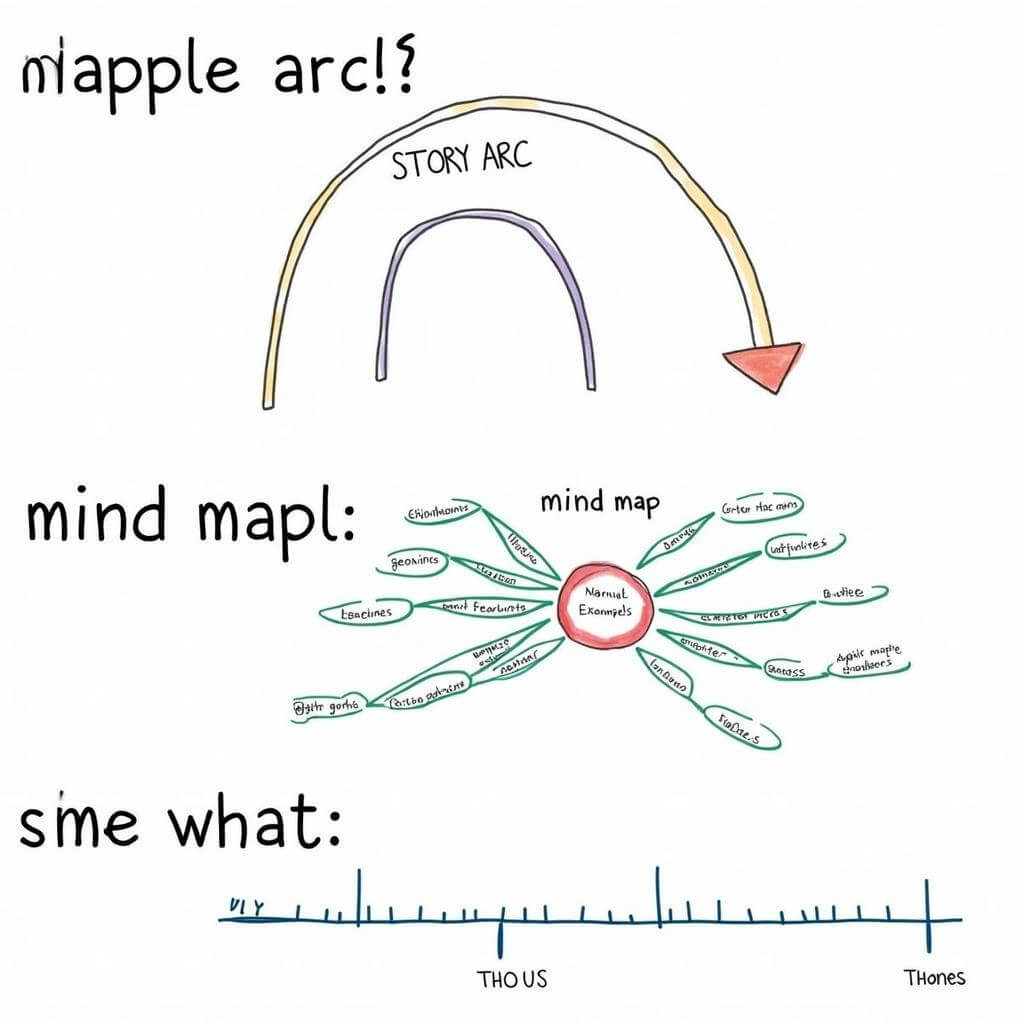Improving understanding of narrative structure is a crucial skill for IELTS test-takers, particularly in the Reading and Writing sections. By grasping the intricacies of how stories and texts are constructed, candidates can significantly enhance their comprehension and analytical abilities. This article will explore effective strategies to develop this essential skill and boost your IELTS performance.
The Importance of Narrative Structure in IELTS
Understanding narrative structure is fundamental to success in various IELTS tasks. In the Reading section, it helps you navigate complex texts more efficiently, while in Writing, it enables you to craft more coherent and engaging responses. Let’s delve into how mastering this skill can benefit you across different IELTS components.
Reading Section Benefits
In the IELTS Reading test, a solid grasp of narrative structure can:
- Improve your ability to predict content and locate specific information
- Enhance your understanding of the author’s purpose and main ideas
- Help you identify key turning points and significant details in the text
improving comprehension of historical texts can be particularly challenging, but understanding narrative structure can make this task more manageable.
Writing Section Advantages
For the Writing section, proficiency in narrative structure allows you to:
- Organize your ideas more logically and coherently
- Create more engaging and persuasive essays
- Develop a stronger sense of flow and progression in your writing
As Dr. Emma Thompson, a renowned IELTS expert, notes, “A well-structured narrative in your writing can be the difference between a Band 6 and a Band 7 score.”
Key Elements of Narrative Structure
To improve your understanding of narrative structure, focus on these essential components:
- Setting: The context in which the story or argument unfolds
- Characters or Main Ideas: The central figures or concepts driving the narrative
- Plot or Argument: The sequence of events or logical progression of ideas
- Conflict or Problem: The central issue or challenge presented
- Resolution: How the story concludes or the argument is resolved
Strategies to Improve Narrative Structure Understanding
1. Active Reading Techniques
Implement these active reading strategies to enhance your comprehension:
- Skim the text to identify the overall structure before detailed reading
- Use highlighters or underlining to mark key elements of the narrative
- Create a mental map of the story’s progression as you read
2. Practice with Diverse Texts
Expose yourself to a variety of narrative styles:
- Read fiction and non-fiction texts from different genres
- Analyze news articles, scientific papers, and historical accounts
- Compare and contrast narrative structures across different types of writing
improving understanding of complex texts is essential for IELTS success, and practicing with diverse materials can significantly contribute to this skill.
3. Summarization Exercises
Regularly practice summarizing texts to reinforce your understanding:
- Write brief summaries of articles or stories you’ve read
- Identify and note down the key narrative elements in each text
- Practice retelling stories or arguments in your own words
4. Visual Mapping
Create visual representations of narrative structures:
- Draw story arcs or plot diagrams for texts you’ve read
- Use mind maps to connect different elements of a narrative
- Sketch timelines for historical texts or complex storylines

5. Comparative Analysis
Enhance your analytical skills through comparison:
- Compare the narrative structures of different texts on similar topics
- Analyze how authors in various genres approach storytelling
- Identify common patterns and unique elements across different narratives
Dr. James Lee, an IELTS Writing instructor, advises, “Comparing narrative structures across texts can sharpen your analytical skills and improve your own writing structure.”
Applying Narrative Structure Knowledge in IELTS Tasks
Reading Section Strategies
When tackling IELTS Reading tasks:
- Quickly identify the text’s overall structure before answering questions
- Use your understanding of narrative elements to predict where specific information might be located
- Pay attention to transitional phrases that signal shifts in the narrative
Writing Section Techniques
For IELTS Writing tasks:
- Plan your essay structure before writing, ensuring a clear narrative arc
- Use topic sentences to guide your reader through your argument
- Ensure each paragraph contributes to the overall narrative of your essay
improving fluency with varied sentence structures can enhance the flow of your narrative and improve your writing score.
Common Pitfalls to Avoid
Be aware of these common mistakes when working with narrative structures:
- Overlooking subtle narrative elements in complex texts
- Focusing too much on details and missing the overall structure
- Neglecting to connect ideas cohesively in your own writing
improving verb tense consistency is crucial for maintaining a clear narrative flow in your writing.
Conclusion
Improving your understanding of narrative structure is a powerful tool for enhancing your IELTS performance. By mastering this skill, you’ll be better equipped to navigate complex texts, craft compelling essays, and achieve higher scores across the test. Remember to practice regularly with diverse materials and apply these strategies consistently in your IELTS preparation.
FAQs
-
How can understanding narrative structure help in the IELTS Listening test?
Understanding narrative structure can help you anticipate the flow of information and key points in spoken texts, improving your ability to follow and comprehend the audio material. -
Is narrative structure important for the IELTS Speaking test?
Yes, understanding narrative structure can help you organize your thoughts more coherently and tell stories or explain concepts more effectively during the Speaking test. -
How long should I practice to improve my understanding of narrative structure?
Consistent practice over several weeks or months is ideal. Aim to analyze at least one text daily, focusing on its narrative structure. -
Can improving narrative structure understanding help with Task 1 in the Writing test?
Absolutely. Understanding narrative structure can help you organize data and describe trends more logically and coherently in Task 1 responses. -
Are there any online tools to help practice narrative structure analysis?
Yes, many websites offer interactive story mapping tools and text analysis resources that can aid in understanding narrative structure.